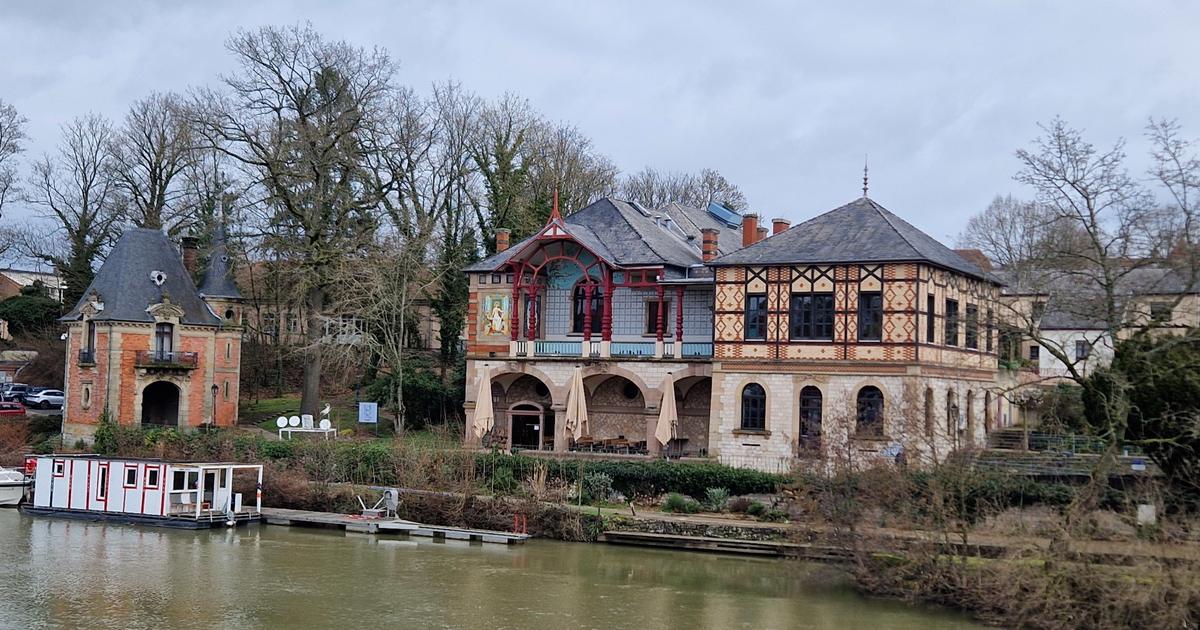'We are not like family', (in collaboration with Territorio Doméstico), 2021. Ana Penyas.
Courtesy of the artist.
In the inner courtyards of the buildings on Calle de Colón in Valencia, one of the most expensive in the city, songs from various parts of Spain could be heard.
They were the inmates, the maids, who sang traditional lyrics while ironing, washing or cooking.
Today, domestic workers, caretakers, cleaning women, domestic workers continue to sing, but most of their voices come from far away, from Latin America, from the former countries of the East.
They are the migrants, exponents of the economic and social change experienced with the globalization of care as well as the West ages rapidly.
A change that the illustrator Ana Penyas, National Comic Award 2018, reflects in her drawings and the social researcher Alba Herrero explains in the speech that makes up the exhibition
In a house.
Genealogy of housework and care.
Both are responsible for this hybrid exhibition, of graphic and ethnographic, visual and sound, archival and novel, documentary and fictional content, based on the testimony of 35 women born between 1930 and 1997, most of them employed, but also some employers.
An unusual proposal because it opens the doors of a museum, the Institut Valencià d'Art Modern (IVAM), to a group hitherto ignored by institutions that have historically sought to exhibit and preserve heritage, as well as mark the canon.
And that, coming out of the 19th-century lethargy, they now seek to capture the sign of the times, participate and promote social debate through art.
One of the illustrations by Ana Penyas in the IVAM.IVAM / Valencia exhibition (November 11, 2022-April 23, 2023)
The result is an interesting sociological synthesis whose accessible reading undoubtedly contributes to the clarity of the comic language of an artist like Penyas, 35, who has already shown her social concerns in her previous graphic stories, dedicated to post-war women. , like her grandmother, or the impact of tourism on people's lives.
Thus, the demands of domestic workers for the improvement of precarious working conditions, the fight against exploitation and for their rights —in short, for their visibility— go through the various chronological blocks of which the sample consists.
The tour allows us to observe the evolution and slow awareness of caregiving, an expression coined by the labor researcher María Ángeles Durán to refer to the feminized social class, which has accelerated in recent years, as Alba Herrero points out.
Several documents give an account of a servants' strike in 1936 in the Andalusian town then called Cazorla de la Sierra.
The arrival of the Franco dictatorship swept away the small advances made in the Republic.
Reality and fiction are intertwined in the exhibition, which stops, for example, in the socialization spaces of the workers, which can be the subway or the bus that they take every day at the same time to go home.
Very real and close are the stories related, such as that of the old woman who does not forget either "post-war hunger" or her feeling of guilt for having eaten the sandwich that was for the girl she was caring for, just a few years younger than her, even if she had rejected it.
Or the testimony of the servant who had never seen the sea until her young lady bought an apartment on the beach during the Francoist development period.
Or that of the employee accused without evidence of having eaten a fruit.
Cases of integration with families and correct treatment are also described.
The reproduction of fragments of the interviews with the women, respecting orality, gives emotion and proximity to the exhibition tour.
The exhibition is completed with a fanzine that includes the collective work of 14 employees and a catalog with illustrations by Penyas and texts by Alba Herrero;
the director of the IVAM, Nuria Enguita, and scholars such as Eider de Dios, whose book
Servant, employee, domestic worker.
Gender, class and identity in the Franco regime and the transition through domestic service
(Universidad de Málaga) has been a benchmark for this singular project.
'In a house.
Genealogy of housework and care'.
IVAM.
Valencia.
Until April 23, 2023.
You can follow BABELIA on
and
, or sign up here to receive
our weekly newsletter
.
Subscribe to continue reading
Read without limits
Keep reading
I'm already a subscriber







/cloudfront-eu-central-1.images.arcpublishing.com/prisa/KXCDNWJR3VEUHHBRHIEWUQOTLU.jpg)


/cloudfront-eu-central-1.images.arcpublishing.com/prisa/2C5HI6YHNFHDLJSBNWHOIAS2AE.jpeg)



